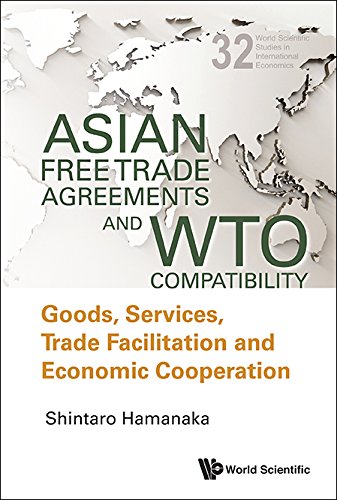

Most ebook files are in PDF format, so you can easily read them using various software such as Foxit Reader or directly on the Google Chrome browser.
Some ebook files are released by publishers in other formats such as .awz, .mobi, .epub, .fb2, etc. You may need to install specific software to read these formats on mobile/PC, such as Calibre.
Please read the tutorial at this link: https://ebookbell.com/faq
We offer FREE conversion to the popular formats you request; however, this may take some time. Therefore, right after payment, please email us, and we will try to provide the service as quickly as possible.
For some exceptional file formats or broken links (if any), please refrain from opening any disputes. Instead, email us first, and we will try to assist within a maximum of 6 hours.
EbookBell Team

0.0
0 reviewsThis book investigates the appropriate relationship between regionalism and multilateralism, with a special reference to recent FTAs in Asia. It is undeniable that past trade multilateralism-regionalism debates centered on the trade-in-goods aspect. However, the majority of recent FTAs in Asia cover issues beyond trade-in-goods and tariff liberalization, such as trade facilitation, services, and economic cooperation. While the General Agreement on Tariffs and Trade (GATT) Article XXIV governs regional integration initiatives in trade in goods, there is no (or at most a thin) World Trade Organization (WTO) Agreement that stipulates the relationship between regionalism and multilateralism in issue areas other than goods.
Thus, this study carefully considers the meaning of WTO-compatible FTAs by distinguishing "WTO consistency" and "WTO friendliness", going beyond GATT Article XXIV debates and proposes a general framework for examining the openness of regionalism in various issue areas by identifying tree-type questions to distinguish several types of exclusiveness. It then specifically asks the following questions: Can Asian FTAs that cover several issues be considered multilateralism friendly? How does the relationship between regionalism and multilateralism differ between trade-in-goods and non-goods issue areas? What are policies that might reduce the exclusiveness of regional initiatives? The study concludes by listing counterintuitive policy suggestions to make FTAs truly WTO compatible. The book also includes a comprehensive list of FTAs in Asia and several WTO Agreements relating to trade regionalism.
Readership: Researchers, professionals, undergraduate and graduate students interested in Free Trade Agreements, World Trade Organization, Regionalism, Trade in Services and Trade Facilitation.